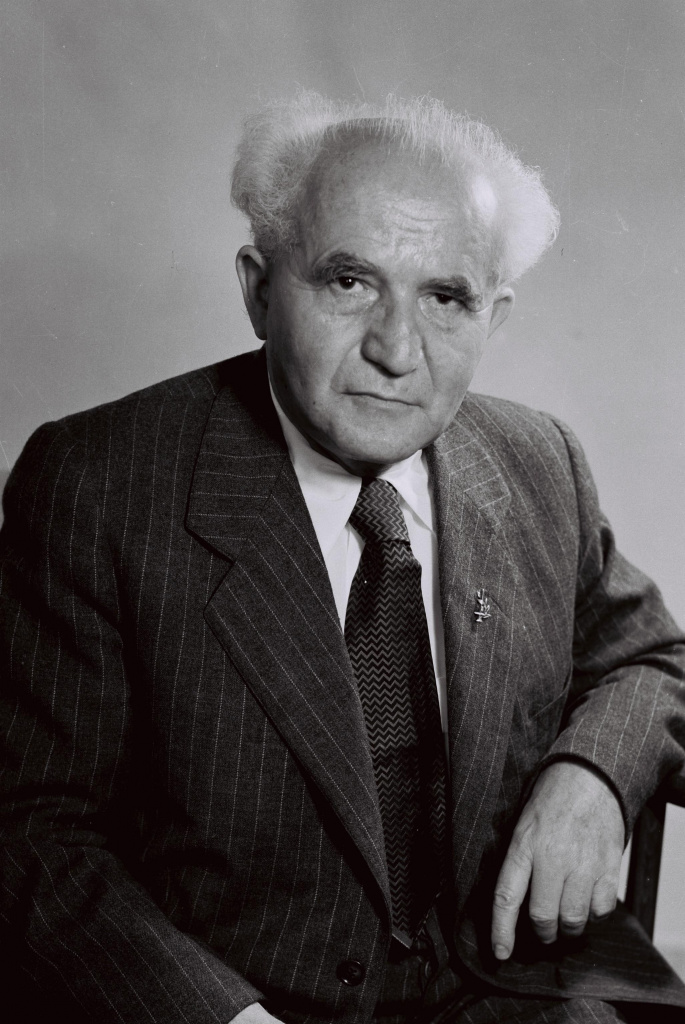David Ben-Gurion (October 16, 1886 - December 1, 1973) Israel's first Prime Minister and Defense Minister, was a major Zionist leader and one of the founders of the State of Israel.
Born in the town of Plonsk, Poland, Ben-Gurion immigrated to Israel in 1906. During his first years in Israel, he was a farmer and a member of the Zionist Labor party committee. In the early 20s, he became Secretary-General of The Histadrut (the general workers' organization) for the next fifteen years, spending nearly half of his time on long trips to Europe, in order to gain Jewish and international support for the labor movement.
In 1930, Israel's Labor Party (Mapai) was formed, to which Ben-Gurion was elected leader, and it soon became the largest party in the Zionist movement. As executive head of the World Zionist Organization, and head of the Jewish Agency from 1935, he was the de facto leader of the Jewish community in Palestine, and largely led its struggle for an independent Jewish state in Mandatory Palestine.
David Ben-Gurion proclaimed the establishment of the State of Israel on May 14, 1948. At the ceremony, he read the "Declaration of Independence”, which he had helped to write, and was the first to sign. Ben-Gurion led Israel to victory in the 1948 Arab–Israeli War, and united the various Jewish militias into the Israel Defense Forces (IDF). Subsequently, he became known as "Israel's founding father".
Following the war, Ben-Gurion served as Israel's first Prime Minister and Defense Minister, for a decade and a half, save for a 2 year leave, in 1953–1955, during which he joined Kibbutz Sde Boker in order to give a personal example of settling the Negev desert. During his years in office, he presided over numerous national projects aimed at the development of the country, and oversaw the absorption of vast numbers of Jews from all over the world.
On June 16, 1963, Ben-Gurion resigned as Prime Minister. Due to disagreements with the younger leadership, he left Mapai In 1965, and formed Rafi, but his new party failed to gain the necessary public recognition, and remained in the government opposition. In 1970 he retired from his public office and set about writing his memoirs. He was buried near the Sde Boker seminary, amidst the desert scenery that he loved.
Source: https://en.wikipedia.org
